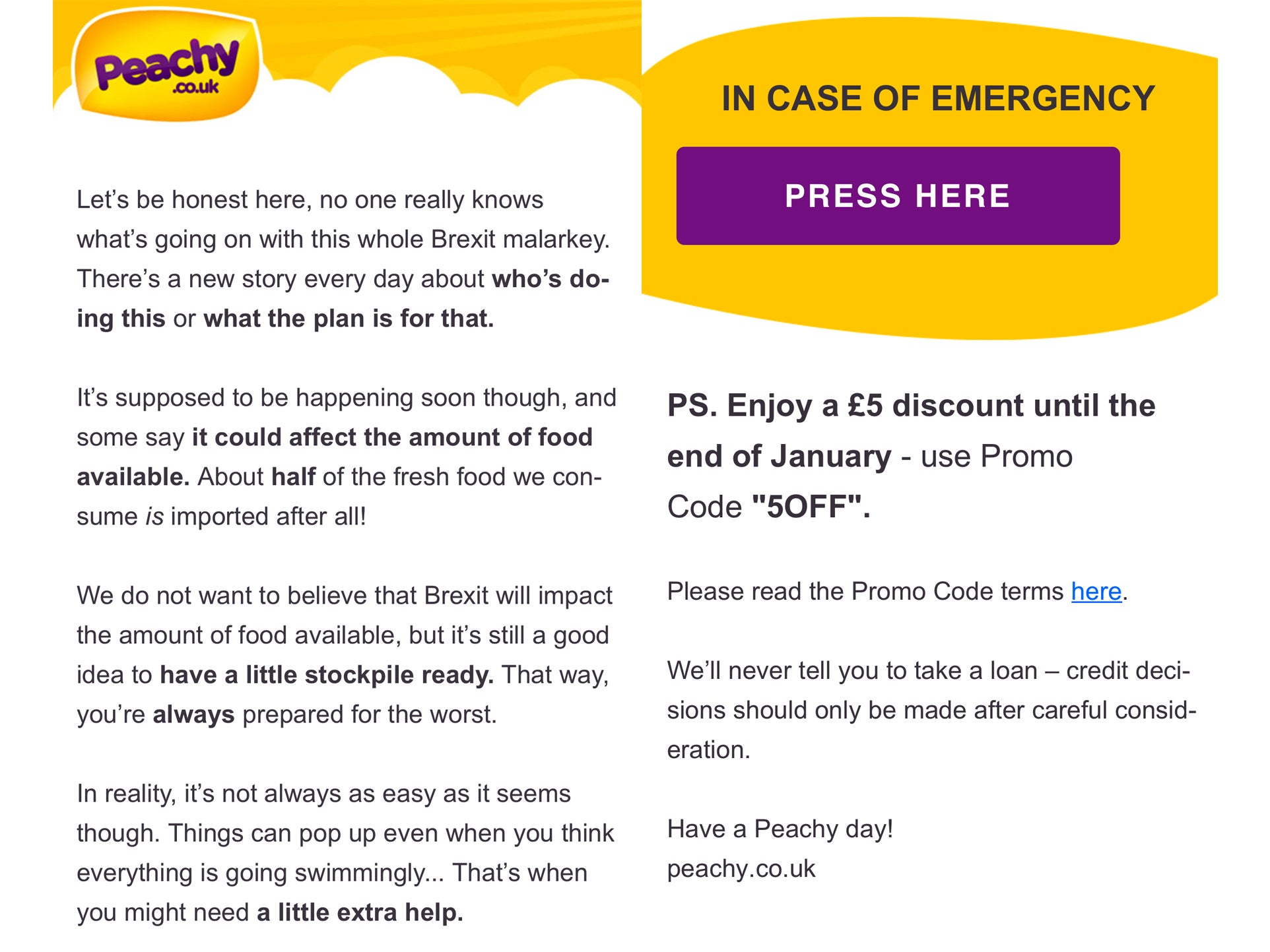Watchdog bans advert encouraging loans to fund Brexit food stockpiles
Advertising Standards Authority branded the advert ‘irresponsible’
Your support helps us to tell the story
From reproductive rights to climate change to Big Tech, The Independent is on the ground when the story is developing. Whether it's investigating the financials of Elon Musk's pro-Trump PAC or producing our latest documentary, 'The A Word', which shines a light on the American women fighting for reproductive rights, we know how important it is to parse out the facts from the messaging.
At such a critical moment in US history, we need reporters on the ground. Your donation allows us to keep sending journalists to speak to both sides of the story.
The Independent is trusted by Americans across the entire political spectrum. And unlike many other quality news outlets, we choose not to lock Americans out of our reporting and analysis with paywalls. We believe quality journalism should be available to everyone, paid for by those who can afford it.
Your support makes all the difference.The Advertising Standards Authority (ASA) has banned an advertisement encouraging customers to take out short-term loans to fund Brexit food stockpiles, labelling it "irresponsible".
In March 2019, it was reported that one in 10 shoppers say they've started stockpiling food in the event of a no-deal Brexit.
Taking these fears into account, in January, financial services company Peachy sent out an email warning its customers that the uncertainty surrounding Brexit "could affect the amount of food available" to purchase.
The company added that half of fresh food consumed in the UK is imported, and as such Brits should "have a little stockpile ready" in order to be prepared "for the worst".
The advertisement continued, stating that those wishing to stockpile in the event of food shortages caused by Brexit may need "a little extra help" financially.
The email then provided a discount for customers to use for a loan on the Peachy website, adding the caption: "IN CASE OF EMERGENCY PRESS HERE."
On Wednesday, the ASA announced that the advertisement has been banned following assessment, saying that marketers promoting short-term loans should "take care to advertise such products responsibly".
The advertising watchdog stated while the email appears to be "light-hearted" in nature, it may put "emotional pressure" on customers to risk spending more than they can afford on loans.

"We considered that the ad’s references to possible food shortages and the stockpiling of food were likely to play on some people’s concerns regarding Brexit, including financially vulnerable consumers who were already struggling or worrying about their financial situation," the ASA stated.
"We therefore concluded that the ad was irresponsible."
The ASA has warned the advertisement must never be sent to customers in the same form again, and has informed Cash On Go Ltd (the trading name for Peachy) that it must not send any "irresponsible" messages to its customers with regards to debt in future.
A spokesperson for Peachy tells The Independent that the advertisement was created "in good faith with no intent to intimidate our customers in any way".
"The email was intended to portray the uncertainties of everyday life, where those who do not have savings for unfortunate events may benefit from our product," they say.
The spokesperson adds that the mention of Brexit in the email was included to make the advertisement "topical".
"The email specifically mentioned that we don't think Brexit will actually impact the amount of food available and we encouraged customers to only make credit decisions after careful consideration," they state.
Supermarket Morrisons recently reported that customers are stocking up on "cupboard fillers" in preparation for a no-deal Brexit.
To find out more about what it means to be a "Brexit prepper", click here.

Join our commenting forum
Join thought-provoking conversations, follow other Independent readers and see their replies
Comments